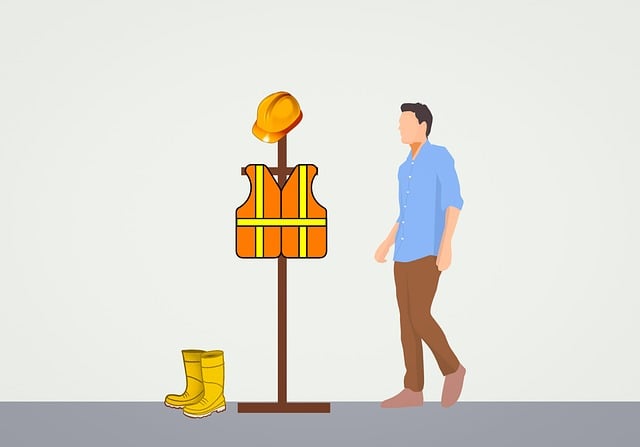In today's digital era, the transportation industry faces significant challenges in maintaining trust and ensuring safety due to online job platforms and a mobile workforce. Commercial driver verification is crucial to prevent accidents, delays, and reputational damage caused by unqualified or dishonest drivers. Growing demand for robust background check processes, driven by companies aiming to protect themselves from liability, is leading to the adoption of advanced technologies like digital identity checks and data analytics. Efficient commercial driver verification systems not only mitigate risks but also enhance operational efficiency, ultimately contributing to a safer road environment. These rigorous processes verify drivers' identities, work histories, and criminal records, reducing risks and fostering a culture of trust and integrity in the industry.
In today’s digital era, ensuring trust within the transportation industry is paramount. As the demand for efficient logistics grows, so does the need for robust commercial driver verification. Background checks are no longer an option but a vital tool for maintaining safety and mitigating risks. This article explores the rising importance of commercial driver verification, delving into comprehensive screening methods that enhance trust while improving fleet management and public safety. We’ll uncover best practices to ensure effective background checks in this crucial sector.
- The Rising Need for Commercial Driver Verification
- Background Checks: A Tool for Safety in Transportation
- Enhancing Trust Through Comprehensive Screening
- Mitigating Risks in the Industry with Thorough Verifications
- Best Practices for Effective Commercial Driver Background Checks
- The Impact on Fleet Management and Public Safety
The Rising Need for Commercial Driver Verification

In today’s digital era, the transportation industry faces unprecedented challenges in maintaining trust and ensuring safety. The need for comprehensive commercial driver verification has never been more critical. With the rise of online job platforms and a mobile workforce, it’s become increasingly difficult to verify the credentials and background of commercial drivers. This presents a significant risk, as unqualified or dishonest drivers can lead to accidents, delays, and damage to the industry’s reputation.
The demand for robust commercial driver verification processes is growing as companies strive to protect themselves from liability and maintain high safety standards. Advanced technology, such as digital identity checks and data analytics, plays a vital role in streamlining this process. By implementing efficient background check systems, transportation businesses can mitigate risks, enhance operational efficiency, and ultimately contribute to a safer road environment for everyone involved.
Background Checks: A Tool for Safety in Transportation

Background checks play a pivotal role in ensuring safety across the transportation industry, especially for commercial driver verification. These thorough processes help uncover potential risks and ensure that individuals accessing critical infrastructure and operating heavy machinery are trustworthy. By verifying a driver’s identity, work history, and any relevant criminal records, background checks act as a robust defence against unsafe practices and security threats.
In the fast-paced world of transportation, where every second counts, commercial driver verification through background screenings is an essential step in maintaining order. It allows employers to make informed decisions, mitigating risks associated with untested or potentially dangerous candidates. Consequently, this practice fosters a culture of accountability and safety, ultimately protecting both drivers and the public.
Enhancing Trust Through Comprehensive Screening

In the transportation industry, building and maintaining trust is paramount for ensuring safe and efficient operations. One of the most effective ways to strengthen this trust is through comprehensive background checks, specifically tailored for commercial driver verification. These screenings go beyond basic identity verification, delving into a driver’s history, including any criminal records, licensing issues, and previous employment details.
By implementing rigorous commercial driver verification processes, transportation companies can minimize risks associated with untrustworthy individuals gaining access to their vehicles and sensitive cargo. Such checks enhance accountability, promote safety on the road, and safeguard the reputation of both the company and the industry as a whole. This meticulous approach ensures that only reliable and competent professionals are behind the wheel, fostering a culture of trust and integrity within the transportation sector.
Mitigating Risks in the Industry with Thorough Verifications

In the transportation industry, where safety is paramount, mitigating risks through comprehensive background checks is non-negotiable. Thorough verifications play a pivotal role in ensuring the trustworthiness and reliability of commercial drivers, who are responsible for transporting goods and people across vast distances. These checks extend beyond simple identity verification; they delve into criminal histories, driving records, and previous employment details to uncover potential red flags.
By implementing robust commercial driver verification processes, transportation companies can significantly reduce the risks associated with hiring the wrong individuals. Accurate background checks help prevent accidents caused by careless or dishonest drivers, ensuring the safety of both cargo and passengers. Moreover, these verifications foster a culture of accountability, instilling confidence among stakeholders and enhancing the industry’s overall reputation.
Best Practices for Effective Commercial Driver Background Checks

Background checks play a pivotal role in fostering trust within the transportation industry, especially when it comes to commercial drivers. Effective background verification processes ensure that only trustworthy and competent individuals operate heavy vehicles, thereby enhancing safety on the road. To achieve this, several best practices should be implemented.
Firstly, comprehensive screening involves verifying driving history, including past employers, license records, and any reported accidents or violations. This process helps identify potential risks associated with individual drivers. Additionally, drug and alcohol testing is an integral part of commercial driver verification, as it ensures that operators are fit to handle complex machinery. Regular updates on background checks are crucial too; re-evaluation every few years can uncover new information that might affect a driver’s suitability.
The Impact on Fleet Management and Public Safety

Background checks play a pivotal role in maintaining trust within the transportation industry, significantly impacting fleet management and public safety. For companies operating fleets of commercial vehicles, verifying the credentials of drivers is more than just a compliance issue; it’s a matter of operational efficiency and ensuring the well-being of everyone on the road. Comprehensive driver verification processes help identify individuals with valid licenses, necessary endorsements, and no significant criminal records, reducing the risk of accidents caused by unqualified or potentially dangerous drivers.
By implementing robust commercial driver verification systems, fleet managers can streamline their operations. These checks enable them to make informed decisions about hiring, assigning routes, and maintaining a safe working environment. Moreover, they contribute to building a reputation for integrity and reliability among clients and regulatory bodies. Ultimately, prioritizing background screenings fosters a culture of safety, enhances operational transparency, and strengthens the industry’s overall credibility.














